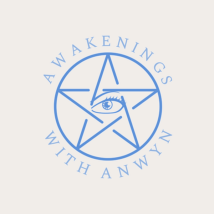
I believe all relationships require RESPECT- whether it’s at work, with friends, family or our intimate partner, what do you think? Dealing with difficult circumstances depends on so many factors – your attachment style, were you loved, listened to, acknowledged?
Did you have to give things up often?
Do things you didn’t want to do? Do you have a fear of looking bad? Most of us do.
Were you a people pleaser, maybe you took the blame?
What has been a theme in your life?
Do you feel supported?
Are you generally anxious? Do you avoid confrontation? What we ignore becomes a monster, it’s usually best to nip it in the bud.
It doesn’t have to be the way. If you have a true desire for harmony, there’s always a way.
Being righteous will usually create in the other person, a feeling they aren’t being listened to and the conversation keeps looping around and rehashing old issues..
Conflict occurs when?
-There are different personalities/ ideas
-Unresolved problems from the past
-Feeling of competition
– Uncertainty about roles or responsibilities
Active listening is key to seeing the other person’s perspective to work together on a solution.
Emotions are a really good sign to pay attention to and a way to learn how to adapt, they affect our thoughts and beliefs, our values and ultimately our decisions. What were you allowed to feel growing up? Were there any emotions that were taboo?
Were you able to feel sadness or anger? Or were they suppressed?
Actions to take:
1. First notice what is my bodily reaction to this situation? Take a moment to feel it in your body and sit with it, take 3 deep breathes. Allow yourself space from the emotion to feel centred & not reactive.
2. Set up time when it is appropriate, where it’s quite and you can talk uninterrupted and when you have calmed down.
3. Identify the issue causing the conflict from both sides with attentive listening -one at a time, see the other’s perspective. Repeat it for clarification. Be as specific and realistic as possible with lots of detail. I’m unsupported, unseen, disappointed, not included. Focus on the impact that will have rather than blaming the other.
4. Label the emotion accurately with gentle acceptance and curiosity. Instead of over exaggerating or underestimating. I’m hurt, I’m angry. Then express that “I matter”, I’m a part of this.
We may label people – “they are toxic”, “needy” and this isn’t useful.
This is Fundamental Attribution bias/Error . See it as the behaviour, not the person’s identity and look at the bigger picture- in the scheme of things is this really important and worth fighting for?
Emotions signpost our needs & Values:
Loneliness is a sign of a need for intimacy & connection.
Boredom is a sign of the need for growth.
Anger is a need for equality, fairness or that our values have been overlooked.
Looking at our emotions is important to understanding our values.
5. Find out what’s important to you in your relationship? This is a self inquiry
What energises you? Go deep, write 7 reasons what you love about the other person?
Then in relation to your need in the situation, what is the importance of this relationship? What is this worth to you?
6. Find out what’s important to them? Ultimately they are trying to connect too.
You could ask this person, what is it that you love about me?
7. Seek common ground or understanding, you can have a different opinion, but collaborate to find a solution.
8. Find Gratitude -When you are resentful about someone’s “Bad qualities” Think of 5 positive qualities that this person also has too.
9. Praising them can break the cycle. Praise goes a long way!
10. Acknowledge both of your wins/ efforts. Celebrate your progress and success.
